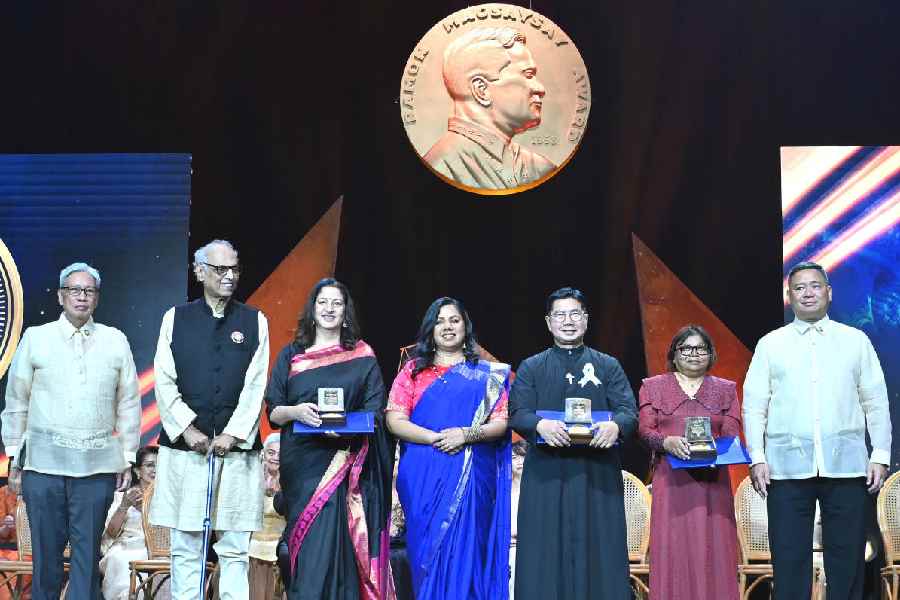An idea born in the heart of rural Rajasthan has travelled all the way to Manila. Educate Girls, a homegrown non-profit that has helped millions of Indian girls return to classrooms, was on Friday honoured with the Ramon Magsaysay Award, often described as the Nobel Prize of Asia.
The award, first announced in August, was formally presented at the Metropolitan Theatre in the Philippines’ capital, where founder Safeena Husain accepted the honour alongside members of her grassroots team.
Started in 2007, Educate Girls began as a modest effort in Rajasthan’s dusty hamlets, where girls’ education often took a backseat to household chores and early marriages.
Over time, it grew into a nationwide movement for change, now working across more than 30,000 villages in Uttar Pradesh, Rajasthan, Madhya Pradesh and Bihar.
With the support of over 55,000 community volunteers, the organisation has brought more than two million girls back to school and provided remedial learning support to over 2.4 million children.
As she took the stage in Manila, Husain dedicated the award to the girls and community workers who form the backbone of the initiative.
“This award is for our girls — for their courage, grit and resilience,” she said. “Girls who manage homes by day and study late into the night to build a better future for themselves, their families and their country.”
She also credited the success of Educate Girls to its Team Balika volunteers — local youth who go door to door persuading parents to enrol their daughters in school.
“When communities come together to educate girls,” Husain said, “every girl gains opportunity, choice, voice and agency.”
Chief Executive Officer Gayatri Nair Lobo said the recognition was both an honour and a call to aim higher.
“It reminds us of the incredible power of people united by one purpose — to educate girls,” she said. “It fuels our ambition for the next milestone: 10x10 — reaching 10 million learners by 2035.”
The Ramon Magsaysay Award Foundation, in its citation, commended Educate Girls for “addressing cultural stereotyping through the education of girls and young women, liberating them from the bondage of illiteracy, and infusing them with skills, courage and agency to achieve their full potential.”
A 25-member team from Educate Girls, including field coordinators, volunteers and first-generation learners, travelled to the Philippines capital for the ceremony, drawing global attention to an idea that began in India’s most overlooked villages.
For an organisation built on the belief that “every girl deserves to learn,” the journey from the margins to Magsaysay marks not just an international accolade but also a moment of vindication — proof that when a community chooses to educate its daughters, it can rewrite its destiny.











